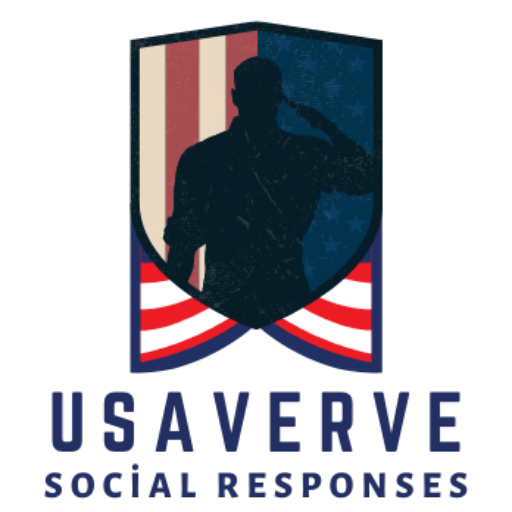Punning Like a Pro: How to Respond to ‘No Pun Intended’✉️
How to Respond to ‘No Pun Intended’

The expression “no pun intended” is a common phrase in everyday conversations, yet its significance goes beyond what many of us may grasp.
When people use this phrase, they are signaling that they’ve unintentionally made a joke, often one that may be in poor taste, and are seeking to apologize. However, how should one react when confronted with the statement “no pun intended”?
Should you acknowledge their apology, or should you express disapproval for the inadvertent joke?
This article delves into the various ways you can respond to “no pun intended,” addressing aspects such as discerning whether the joke was intentional, the significance of understanding the speaker’s intentions, and the most effective ways to navigate such situations.
By the end, you will gain a better insight into how to handle responses to “no pun intended,” enabling you to manage the situation with composure and tact.
It’s okay, I still laughed
No worries, I chuckled nonetheless. This response serves as a positive acknowledgment, indicating that you recognize the unintentional pun, yet you still appreciate the humor.
Expressing this sentiment can effectively diffuse any potential awkwardness or tension arising from the unintended pun.
These are just a handful of the potential responses you can employ when faced with the phrase “no pun intended.”
Regardless of the specific phrase you opt for, maintaining a tone of respect and understanding is crucial. This ensures that the speaker understands your appreciation for their perspective and the effort they put into being considerate.
Thanks for being mindful
“Thank you for your mindfulness” is a fitting response when someone mentions “no pun intended.”
This expression conveys acknowledgment that the individual took the time to think about the potential implications of their words and deliberately avoided any unintended puns.
Moreover, it expresses gratitude for the person’s considerate approach, adding a meaningful touch to the interaction.
This phrase serves to nurture a sense of mutual respect between both parties, highlighting that both individuals are mindful of each other’s feelings.
Simple yet impactful, it becomes a powerful tool to strengthen relationships, demonstrating genuine appreciation for someone’s thoughtfulness.
In essence, this statement is an excellent way to convey gratitude for the speaker’s conscientiousness.
I’m sure you didn’t mean it
“I’m sure you didn’t mean it” is an appropriate response when someone mentions “no pun intended,” as it signifies comprehension of the situation and recognition of the other person’s intentions.
This response indicates an understanding that the individual did not intend to make a joke or an insult but rather aimed to convey a point.
Moreover, it reflects a willingness to forgive the unintentional slip and proceed without harboring any ill feelings. Additionally, it fosters a sense of connection, enabling both parties to move past the situation and continue the conversation seamlessly, free from further awkwardness.
This statement serves as a positive way to convey that there is no belief in malicious or hurtful intentions from the speaker.
I understand, no worries
In certain instances, a laid-back reply like “I understand, no worries” is an ideal way to convey that you’ve accepted their words as intended and recognized the implied meaning.
This response is particularly fitting when someone mentions “no pun intended,” as it politely signifies your understanding of the distinction between their intended message and the potential humor associated with a pun.
By choosing this response, you also showcase that you’re not taking offense to their words and that you’re open to sustaining the conversation without harboring any hard feelings.
I appreciate your discretion
When someone mentions “no pun intended,” it is a courteous way of expressing that they did not intend to make a joke. A fitting response in this scenario would be to say, “I appreciate your discretion.”
This expression acknowledges the considerate nature of the other person, recognizing that they refrained from making a joke at your expense. Moreover, it conveys an understanding of their thoughtfulness without passing judgment on their use of humor, fostering a more constructive and respectful dialogue.
Choosing this phrase demonstrates your appreciation for the speaker’s effort to be respectful and considerate. It reflects your awareness of the situation and conveys gratitude for the effort they invested in being courteous and thoughtful.
Ultimately, responding with “I appreciate your discretion” is the perfect way to express your gratitude and acknowledge the other person’s thoughtfulness.
That’s okay, I think it’s funny
If you genuinely found the pun amusing, you can employ this phrase to convey to the speaker or writer that you appreciate the unintentional humor.
Expressing this sentiment aids in alleviating any potential awkwardness or tension resulting from the pun. Furthermore, it communicates that you harbor no offense and are open to humor, contributing to a more relaxed atmosphere.
It’s too late now – the pun was already made!
“It’s too late now – the pun was already made!” serves as a playful and humorous comeback when someone claims no pun intended after inadvertently making a pun.
This response playfully suggests that the pun was so clever that it must have been intentional all along, turning the situation into a witty moment.
The phrase also carries a sense of inevitability, emphasizing that the pun was destined to happen, regardless of the speaker’s initial intentions.
Employing this humorous response is a way of acknowledging the cleverness of the pun and expressing appreciation for the speaker’s unintended wit.
This light-hearted and funny remark is particularly suitable if you’re in the mood for some playful banter, showcasing that you can appreciate humor without taking the situation too seriously.
That’s ok, I get it.
The expression “That’s okay, I get it” serves as a fitting response when someone mentions no pun intended. It tactfully acknowledges the speaker’s attempt at humor or lightening the mood, even if it didn’t quite hit the mark.
This phrase demonstrates understanding and respect for the speaker, conveying appreciation for their humor, albeit unintentional.
It provides a friendly and supportive response without the need to reciprocate with a joke or pun of your own, maintaining a pleasant conversational tone.
By using this phrase, you convey that you comprehend the humor behind the pun and value the speaker’s effort. It shares a similarity with the first response but with a slightly more relaxed and amiable vibe.
No worries, I get it.
No problem, I completely understand. This response is fitting when someone mentions “no pun intended” as it conveys an awareness of the situation, an acknowledgment of the individual’s humorous intent, and a recognition of their effort to avoid causing offense.
It signifies that you comprehend the humor attempted, and you’re not bothered or upset by it. Additionally, this response can contribute to creating a lighter atmosphere and infusing some humor into the conversation.
Moreover, it serves as a subtle way to express that you are at ease with the other person, creating an environment where they feel free to be themselves around you.
That’s nice, thank you.
That’s wonderful, thank you. This response is fitting when someone mentions “no pun intended” as it serves as a courteous acknowledgment of the effort the other person invested in communicating appropriately.
It suggests that you not only grasp the intention but also value the consideration shown. Moreover, it can act as a conversational catalyst, breaking the ice and indicating your understanding of the other person’s motives.
Additionally, it communicates your openness to humor and a willingness to participate in light-hearted banter.
In essence, it expresses respect and gratitude for the other person’s endeavor, fostering a more enjoyable conversation.
It’s alright, no harm done.
The expression “It’s alright, no harm done” serves as an appropriate reply when someone mentions “no pun intended.”
It is a courteous yet sincere way to recognize that the speaker may have intended to inject humor or a light-hearted tone into their statement but inadvertently caused offense or upset.
This response conveys an understanding that the speaker had no malicious intent, and it signifies acceptance of their apology without taking the matter too seriously.
It’s a straightforward phrase that effectively communicates understanding and respect, providing a sense of closure to the conversation.
I’m glad you thought of that.
“I’m pleased you considered that” is an apt response when someone informs you, “no pun intended,” as it conveys your appreciation for the effort they invested in crafting the joke.
This response not only demonstrates understanding and camaraderie but also suggests that you grasped the humor and acknowledged the intention behind it.
Moreover, it serves as an opportunity to express gratitude for the other person’s cleverness and creativity.
In a courteous and respectful manner, this statement recognizes the thoughtfulness that went into their joke, highlighting your admiration for their intelligence and sense of humor.
It’s an effective way to convey your impression of the speaker’s awareness and consideration for others.
It’s all good.
“It’s perfectly fine” is an excellent response when someone informs you, “no pun intended.” This conveys your understanding of their intention and acknowledges the effort they invested in delivering an amusing statement.
How to Respond to ‘No Pun Intended’: Moreover, it indicates that you are at ease with the humor and don’t feel the need to make a fuss about it.
You can employ this phrase to express gratitude for the person’s attempts at humor while maintaining a light and amicable atmosphere in the conversation.
This expression is also an effective way to communicate that their joke was well-received, and you don’t intend to scrutinize or take it too seriously.
In essence, it’s a wonderful means of showing someone that you comprehend and value their intentions without overshadowing the ongoing conversation.
No hard feelings.
“No hard feelings” is an excellent response when someone mentions “no pun intended.” This conveys your grasp of the joke while emphasizing that you don’t take it too seriously.
It’s a subtle way to recognize the humor without making the other person feel uncomfortable or regretful.
This response also reflects your maturity in engaging in light banter without allowing it to negatively impact your relationship. It’s a straightforward expression that communicates respect and a clear understanding.
By using this phrase, you demonstrate that you have a good sense of humor and can navigate jokes while maintaining a positive and amicable connection with the other person.
In essence, it’s an effective way to convey that you’re not offended and that you appreciate the speaker’s intention.
In Conclusion:
The key takeaway from this article is the importance of maintaining respect when responding to someone who unintentionally makes a pun.
Even if the pun doesn’t land well, it’s crucial to recognize that the person likely didn’t intend to make a joke. Acknowledge their attempt at humor and seize the opportunity to infuse a moment of light-heartedness.
Respond with positivity and humility, allowing the conversation to smoothly transition to the next topic.
A little understanding can significantly enhance the overall enjoyment of the conversation for everyone involved.
Regardless of the approach you choose, the paramount principle is to uphold respect and maintain a positive tone.
Being the subject of a joke that isn’t understood can be uncomfortable for anyone, so demonstrating understanding and expressing gratitude for the attempt at humor is vital.
Even if the joke isn’t entirely clear, showing appreciation for the effort put into making others laugh is a thoughtful gesture.
Armed with these insights, you are now better prepared to respond to “No Pun Intended” in a manner that is both respectful and fitting for the situation.




